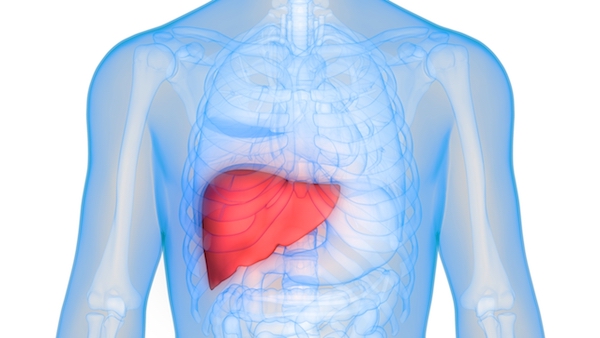Like most organs in your body, a functional, healthy liver is important to living a healthy fulfilling life. Your liver, an organ about the size of (but not the shape of) a football that rests just under your rib cage on the right side of your body. Most people know that the liver is important for filtering toxins out of your body, and it plays a huge role in filtering alcohol (a toxin) from your system. Liver damage and Liver disease are important aspects of your health to be aware of.

Some Common Symptoms of Liver Damage or Liver Disease Include:
- Jaundice (Skin and eyes appearing yellow)
- Itchy Skin
- Nausea or Vomiting
- Abdominal Pain and swelling
- Dark Urine
- Pale, Bloody, or Tar-Colored stool
- Chronic Fatigue
There are many causes of Liver damage of Liver disease, such as viral infections. Viruses (and parasites) can cause inflammation and harm liver function. Hepatitis is a common virus that affects your liver. You can also suffer liver damage from cancer. Both liver cancer and bile duct cancer can cause damage. Liver Damage is also commonly caused by heavy drinking and alcoholism. Drinking frequently and heavily can lead to partial or full liver failure. Piercings, injections, and unprotected sex can all lead to infections or diseases that may also cause Liver damage.
Preventing Liver Damage or Disease
With all these risk factors you might be wondering what you can do to prevent Liver damage or disease. A key behavior that will help avoid liver damage is drinking in moderation. Avoid heavy drinking, which is defined as more than eight drinks a week for women, and more than 15 for men. You should also make sure to avoid sharing needles or engaging in unprotected sex. If you are getting a piercing or tattoo, make sure the shop has quality health and safety procedures. Finally, you can make sure you get vaccinated, especially for hepatitis. Hepatitis vaccines will help you avoid infections that can drastically harm your liver.
If you are already experiencing Liver damage, make sure to speak with your doctor. They may recommend medicinal or lifestyle treatments, depending on your diagnosis. Your health care provider will typically run blood tests, or imaging tests such as an Ultrasound or CT scan. They may even require a tissue sample or biopsy from your liver to give you a better diagnosis. Less sever cases of liver damage or disease will probably require a lifestyle change or medically monitored weight loss routine. In more serious cases you may require medication or surgery, potentially even a liver transplant.
The best method of dealing with Liver damage is to prevent the damage in the first place. Keep your alcohol consumption to reasonable levels and maintain take care of your health and avoid risky behavior. If you do these things you should be able to avoid Liver damage.